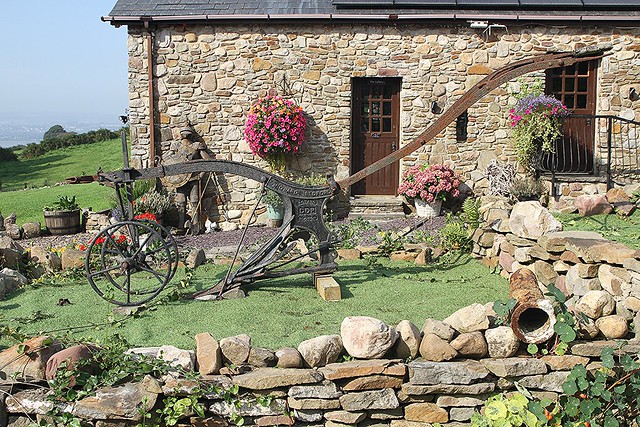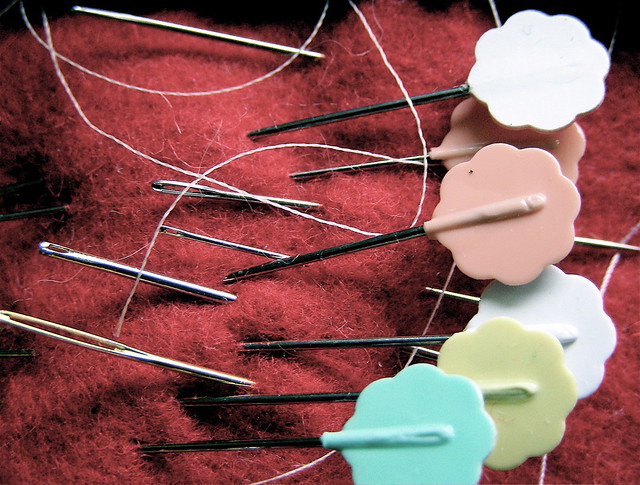Words for habit, custom, virtue, moral(ity) and related things in Celtic languages.

Words marked with a * are reconstructions.
| Proto-Celtic | *banssus = custom, habit |
|---|---|
| Gaulish | bessu = customs, habits |
| Old Irish (Goídelc) | bés, béss, bǽs = custom, habit bésad = custom, customary practice bésgnae = custom, discipline, law |
| Middle Irish (Gaoidhealg) | bés, bésse, bes = habit, custom, usual procedure, practice, manner, way, moral(s), good behaviour bésach = mannerly, well-behaviour bésaid = moralist (?) bésgnae = custom, usage, discipline, protocol béstae = moral |
| Irish (Gaeilge) | béas [bʲiːa̯sˠ/bʲeːsˠ] = habit, moral habit béasa = conduct, manners béasach = well-mannered, mannerly, polite béasaíocht = mannerliness, politness béascna = mode of conduct, custom, usage, culture béasmhúineadh = teaching of good manners |
| Scottish Gaelic (Gàidhlig) | beus [beːs] = moral(s), virtue, conduct, demeanour beus-eòlas = ethics, moral philosophy beusach [beːsəx] = moral, virtuous, ethical, chaste, modest beusachd [beːsəxg] = good behaviour, moral rectitude, etiquette beusail [beːsal] = moral, virtuous, ethical, chaste, modest beusalachd [beːsəl̪ˠəxg] = ethics, moral behaviour beusanta [beːsən̪ˠdə] = ethical |
| Manx (Gaelg) | beaoil = moral, living beasagh = civil(ized), decorous, moral, obedient, pliable |
| Proto-Brythonic | *boɨs = (?) |
| Middle Welsh (Kymraec) | moes = habit, wont, custom, tradition moeseidd, moesaidd = courteous, polite, well-bred moesgar, moes gar = courteous, polite, refined moessic = courteous, where courtesy is found moessauc, moessawc, moessoc = polite, well-bred, seemly, deferential moes(s)sawl = moral, ethical |
| Welsh (Cymraeg) | moes [moːɨ̯s / mɔi̯s] = established or usual behaviour, habit, wont, custom, tradition, social convention, courtesy, civility, manners, etiquette moesau, moesoedd = morals, moral principle(s) moesgar = courteous, polite, refined, well-mannered, civil moesog = polite, well-bred, seemly, deferential moesol = moral, ethical, high-principled anfoesol, di-foes = immoral |
| Middle Breton (Brezonec) | boas = custom, habit boaset = accustomed, trained, habitually |
| Breton (Brezhoneg) | boaz [ˈbwɑːs] = custom, habit boazamant = practice, tradition boazañ [ˈbwɑːzã] = to get used to boazet = accustomed, trained, habitually |
Etymology: from the Proto-Indo-European *bʰendʰ- (to bind, bond), or from *bʰeydʰ- (to compel, force, trust) [source].
Words from the same PIE root include bide, confide, defy, faith, federal and infidelity in English, besë (pledge, oath, promise, vow) in Albanian, beiða (to ask, request) in Icelandic, and бедя (bedjá – to accuse, slander, persuade) in Bulgarian [source].
| Proto-Celtic | *gnātos = known, recognised *angnātos = unknown, obscure *gnināti = to recognise |
|---|---|
| Gaulish | gniiou = I recognise (?) |
| Old Irish (Goídelc) | gnáth [ɡnaːθ] = customary, usual gnáthach [ˈɡnaːθax] = customary, usual, constant, familiar, well-known gnáthaigid = to frequent, inhabit, practise ingnad = strange, unusual, wonderful, marvel, miracle, wonder |
| Middle Irish (Gaoidhealg) | gnáth = customary, usual, familiar, well-known, custom, wont, usage gnáthaid = to practise, use, be accustomed to gnáthaigid = to be accustomed to, practise, frequent, inhabit gnátham = custom, wont, habit gnáthe = usualness, frequency gnáthmar = wonted, customary ingnad, ingnáth, ingnuth = strange, wonderful, remarkable, unusual, unfamiliar |
| Irish (Gaeilge) | gnáth [ɡn̪ˠɑː/ɡɾˠɑː/ɡɾˠæː] = custom, usage, customary thing, haunt, resort gnách [ɡn̪ˠɑ̃ːx/ɡɾˠɑːx] = customary, usual, common, ordinary gnáthaigh = to make a habit of, practise, frequent, haunt gnáthaíocht = commonness, frequency, usage, wont gnáthamh = usage, custom, procedure, routine |
| Scottish Gaelic (Gàidhlig) | gnàth [grãː] = usual, common gnàthach [grãː.əx] = conventional, routine, habitual, orthodox gnàthachadh [grã.əxəɣ] = accustoming, practising, rehearsing, custom, practice, rehearsal gnàthachail [grãː.əxal] = customary gnàthachas [grãː.əxəs] = invariableness, constancy, convention, custom gnàthachd [grãː.əxg] = customariness |
| Proto-Brythonic | *gnọd = known, recognised |
| Middle Welsh (Kymraec) | gnaud, gnawd, gnawt, gnot = usual, customary, wont |
| Welsh (Cymraeg) | gnawd [ɡnau̯d] = usual, customary, wont, accustomed, natural, characteristic, known, frequent |
| Cornish (Kernewek) | gnas = character, nature, temper, quality gnasek = natural gnasen = trait |
| Old Breton (Brethonoc) | gnot = (?) |
Etymology: from the Proto-Indo-European *ǵn̥h₃tós (known, recognisable), from *ǵneh₃- (to know, recognise) [source].
Words from the same PIE roots include agnostic, canny, cognition, cunning, ignore, incognito, know, recognise in English, and noto (well-known, famous, notorious) in Italian [source].
| Proto-Celtic | *kleto- = (?) |
|---|---|
| Old Irish (Goídelc) | clecht = custom, habit clechtaid = to practise, ply |
| Middle Irish (Gaoidhealg) | clecht = custom, wont, habit clechtach = practised, experienced, customary clechtaid = to become accustomed to, frequent, consort with, practise, ply |
| Irish (Gaeilge) | cleacht [clʲaxt̪ˠ] = to perform habitually, to be, to become accustomed to, to practise cleachtach (ar, le) = accustomed (to) cleachtadh [ˈclʲaxt̪ˠə/ˈclʲaxt̪ˠu] = habit, wont, practice, experience, exercise; to practise cleachtas = practice cleachtóir = practitioner |
| Scottish Gaelic (Gàidhlig) | cleachd [klɛxg] = use, employ, accustom, get used to, habituate, practise cleachdach [klɛxgəx] = customary, habitual, usual cleachdadh [klɛxgəɣ] = using, use, convention, custom, habit cleachdaiche [klɛxgɪçə] = consumer, user cleachdail [klɛxgal] = customary, habitual, usual cleachdta [klɛxdə] = used to, accustomed to |
| Manx (Gaelg) | cliaghtey = habit, practice, rehearsal, usage, use; to rehearse, train, use, profess cliaghtagh = habitual, customary, conventional cliaghtaghey = to accustom, exercise, practise |
Etymology: possibly from the Proto-Indo-European *kʷelh₁- (to turn, revolve around, dwell) [source].
| Proto-Celtic | *ɸarebereti = to use |
|---|---|
| Old Irish (Goídelc) | arbeir [arˈbʲerʲ] = to live, use, employ, eat, reproach, subdue, express do·airbir = to bend, subdue, bow down, yield, surrender |
| Middle Irish (Gaoidhealg) | ar-beir, air-ber, arbeir = to live, eat, use, employ, plead, oppose, express, subdue, quell |
| Proto-Brythonic | *ėrβėrɨd, = to make use of, employ, take |
| Old Welsh (Kembraec) | arber = to use, make use (of), employ |
| Middle Welsh (Kymraec) | aruer, arfer, arver = usage, practice, habit, custom, tradition arber, arueru, arver, arfer = to use, make use (of), employ arueredic, arferedig = usual, habitual, customary, familiar arverog, arferoc = usual, habitual, customary, familiar, common, ordinary arferol, arverol, aruerol = usual, habitual, customary, familiar, common, ordinary, normal, regular |
| Welsh (Cymraeg) | arfer [ˈarvɛr/ˈarvar] = usage, practice, habit, custom, tradition arferaf, arfer(u) = to use, make use (of), employ arferedig = usual, habitual, customary, familiar arferiad = habit, usage, practice, custom arferol = usual, habitual, customary, familiar, common, ordinary, normal, regular |
Etymology: from the Proto-Celtic *ɸare- (for(e)-) and *bereti (to carry, bear, flow), from Proto-Indo-European *bʰéreti (to be carrying), from *bʰer- (to bear, carry) [source].
Words for To Carry / Flow in Celtic languages come from the same roots.
Sources: Wiktionary, Am Faclair Beag, Online Manx Dictionary, Teanglann.ie, eDIL – Electronic Dictionary of the Irish Language, In Dúil Bélrai English – Old Irish glossary, An Etymological Dictionary of the Gaelic Language, Geiriadur Prifysgol Cymru, Gerlyver Kernewek, Dictionaire Favereau, TermOfis, English – ProtoCeltic WordList (PDF), Etymological Dictionary Of Proto Celtic












